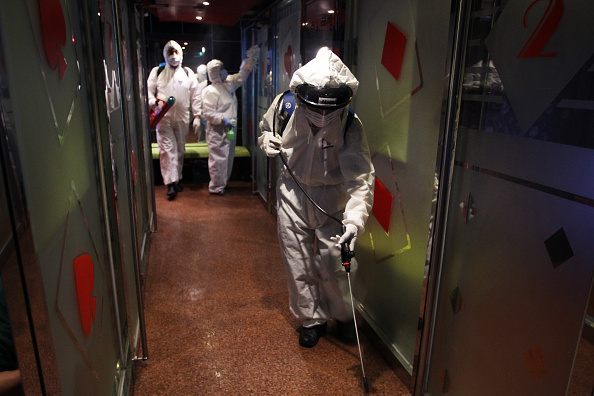Middle East Respiratory Syndrome (MERS) is causing concern across Europe, with another victim reported to have passed away due to complications linked to the disease just hours ago.
The German man becomes the first person in Germany to die of MERS or MERS-related symptoms. Over the past 48 hours, Slovakian authorities have also been battling the disease – the first time it has turned up in Europe – said to be prevalent in a South Korean visitor.
The disease – which is related to the SARS virus – has plagued South Korea, and killed 15 people since May of this year, and 19 people in total.
The outbreak is now thought to be so serious that the World Health Organisation (WHO) meeting this week to discuss the disease and how to tackle it. A statement on the WHO website said: “As of 15 June 2015, the Republic of Korea has reported 150 laboratory-confirmed cases and 15 deaths. The outbreak, which started with the introduction of MERS-CoV infection into the country by a single infected traveler, was amplified by infection in hospitals and movement of cases within and among hospitals.
“The number of new cases occurring each day, which is the most accurate picture of whether the outbreak is slowing down, appears to be declining. This suggests that the containment measures in place are having an effect in reducing new infections. As these containment measures have been recently intensified, it is too early to measure their full impact on the transmission.”
The BBC reports:
The 65-year-old man died in a clinic in the north-western city of Osnabruck, German media reports say. The South Korean health ministry said two hospitals would begin the plasma treatment trials. The outbreak in South Korea originated from a 68-year-old man who had travelled to the Middle East. He was diagnosed as the country’s first Mers patient last month.
Officials emphasise that the number of new cases is decreasing, but there is still widespread fear and misinformation. Health workers are spraying disinfectant inside karaoke rooms and other businesses, and teachers are sprinkling salt on school grounds in a misplaced attempt to protect themselves as many schools reopen this week. There is currently no cure or vaccine that can protect people from Mers.
The disease is caused by a coronavirus from the same family as the one that triggered China’s deadly 2003 outbreak of Severe Acute Respiratory Syndrome (Sars) and is most likely spread by coughs and sneezes.
The government body ‘Public Health England’ recently issued a new algorithm for the assessment and initial management in primary care of returning travellers and visitors from countries affected by Middle East Respiratory Syndrome-Coronavirus (MERS-CoV). The documentation states that “close contacts should self-isolate and alert their GP as soon as possible”.

COMMENTS
Please let us know if you're having issues with commenting.